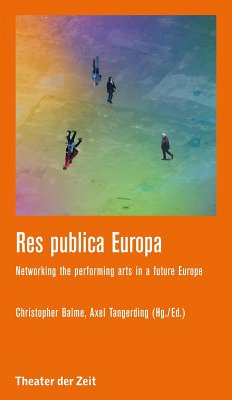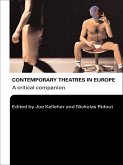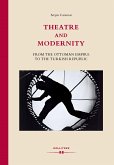Quo vadis Europa? And where are the independent performing arts heading? Driven by values such as tolerance and openness, what power do the independent performing arts possess in a climate dominated by Euroscepticism? Are those values essential for Europe and if so, how can they be atrengthened? These were the questions focussed on at the IETM's Plenary Meeting Munich (International Network for Contemporary Performing Arts) which is documented in this bi-lingual book. Central to the reflexions around the role of the performing arts in Europe were the topics "Post-colonialism", "Diversity" and "Visions for the Future". Including contributions by Ulrike Guérot, Robert Menasse and Kathrin Röggla. Quo vadis Europa? Wohin die freie Szene? Welche Tragkraft haben in einem von Euroskepsis geprägten Klima die unabhängigen darstellenden Künste, deren Arbeitsbegriff sich auf Werte wie Toleranz und Offenheit stützt? Sind diese Werte konstituierend für Europa, wie können sie gestärkt werden? Diese Fragen standen im Mittelpunkt des Treffens des International Network for Contemporary Performing Arts (IETM) in München, das in diesem zweisprachigen Buch dokumentiert wird. Im Zentrum der Reflexionen rund um die Rolle der darstellenden Kunst in Europa stehen Postkolonialismus, Diversität sowie Visionen für die Zukunft. Mit Beiträgen von Ulrike Guérot, Robert Menasse und Kathrin Röggla.
Dieser Download kann aus rechtlichen Gründen nur mit Rechnungsadresse in A, B, BG, CY, CZ, D, DK, EW, E, FIN, F, GR, H, IRL, I, LT, L, LR, M, NL, PL, P, R, S, SLO, SK ausgeliefert werden.









